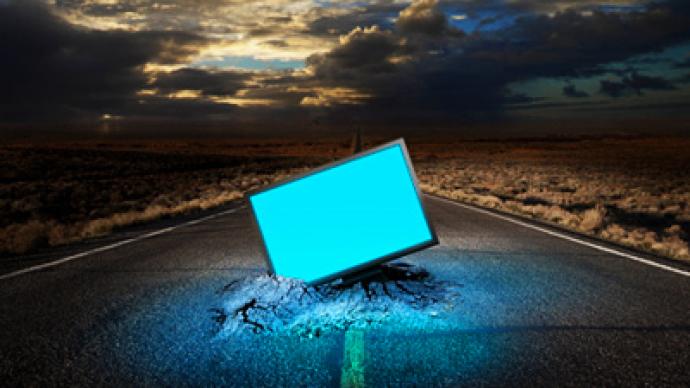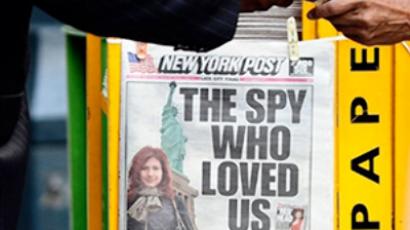American TV, newspapers take viewers and readers for fools

Amid plummeting ratings and readership, could it be time for US television news shows and newspapers to change their attitude towards their viewers and readers?
American news outlets are cranking up the volume on made-up issues through yelling pundits and guests, silencing the truth by cutting off interviews, and they create stories that just don’t matter. Are they taking the viewer and reader for a fool?"In short – yes, they do," said editorial columnist Ted Rall. Some have dubbed “dumbing down” the main media trend of the 21st century. "There is an old axiom within TV, it's called ‘KISS’, which stands for keep it simple and stupid," explained journalist and media critic Danny Schechter. While among some of the major news outlets’, simply “making things up” has been as natural as breathing, this approach still often comes as a shocker from others.For example, the New York Times; “All the news that’s fit to print” – with some of the details reported – becoming outright embarrassing.Editorial columnist and long-time insider of the world of the printed word, Ted Rall, cited a report “straight” from the border between Afghanistan and Kyrgyzstan."The only problem with this of course is that Kyrgyzstan and Afghanistan do not share any common border whatsoever. What's wrong with you people, don't you own a globe? There is a whole country called Tajikistan between Kyrgyzstan and Afghanistan." he said. "The mainstream media has gotten so not fact-checky and they let things slide. If they were more accurate and more researchery, they would be more effective," said political comedian Lizz Winstead. Run by huge corporations, exactly what tricks to use to be effective is determined by the hand that feeds.But what happens as political agendas move forward, and real news stay behind?With over half of Americans distrusting the news media, with newspapers struggling to stay afloat amid plummeting sales, and the biggest TV networks losing ratings like never before, perhaps it could be time for them to realize they must be doing something wrong, if the viewers and readers are just not buying it anymore?"If these news media are not respecting their audience, are not trusting their audience, and not delivering to the audience what the audience thinks that it wants and needs, it's unsurprising that fewer people are buying newspapers, and fewer people are watching broadcast television news," commented author media critic Rory O’Connor.The Young Turks radio host and MSNBC contributor Cenk Uygur said the US media makes mistakes, just like anyone else and they aren’t trying purposely to deceive Americans.“You wish they would do better,” he commented. TV, unlike the Internet, is not able to received immediate feedback. Organizations that focus on online news receive instant comments from readers and can make corrections. The 24/7 media environment has proven more challenging for traditional media. “Youcan’t avoid some mistakes. It just a matter of how quickly you can respond to them and fix them,” Uygur said.The Internet and online video specifically has changed how the media works. It opens new opportunities for journalism. “It [YouTube] has changed things for the better in so many ways,” Uygur argued. “It allows people a different option. I think a lot of the mainstream media is beholden to the politicians and to the powerful, if they don’t play ball they get their access denied.”













